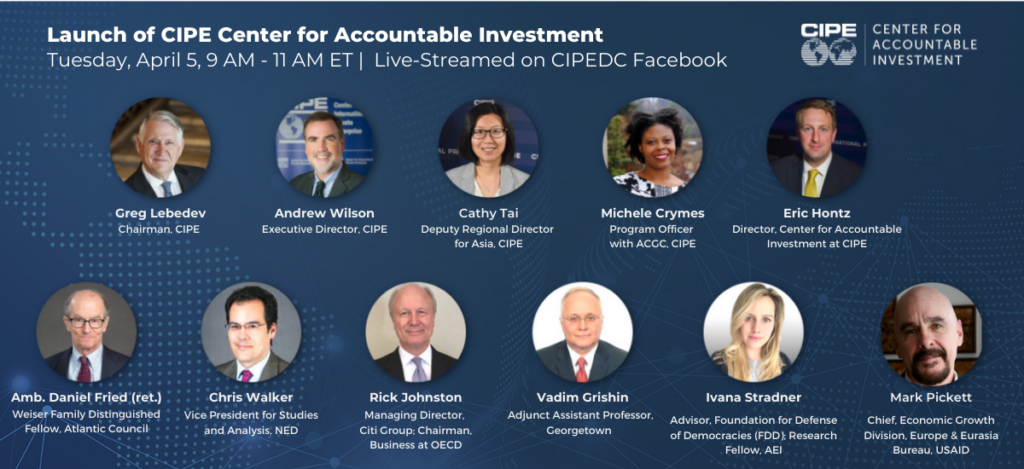“If [Russian President Vladimir] Putin is successful in undermining Ukrainian independence and democracy, the world will return to an era of aggressive and intolerant nationalism reminiscent of the early twentieth century,” warns Stanford University’s Francis Fukuyama. And, he cautions, “the United States will not be immune from this trend.”
But the notion that, chastened by Putin’s gross violation of norms, democracies will band together in a muscular reaffirmation of the liberal international order is “wishful thinking,” claims analyst Shivshankar Menon. The war is no doubt a seismic event that will have profound consequences for Russia, its immediate neighbors, and the rest of Europe. But it will neither reshape the global order nor presage an ideological showdown of democracies against China and Russia, he writes for Foreign Affairs:
After all, many of the world’s biggest democracies, including India, have so far not joined the U.S.-led economic campaign against Russia or even explicitly condemned the invasion. Far from consolidating “the free world,” the war has underscored its fundamental incoherence. In any case, the future of global order will be decided not by wars in Europe but by the contest in Asia, on which events in Ukraine have limited bearing.
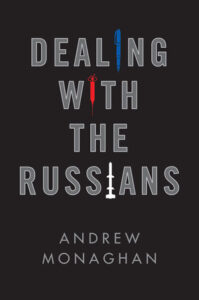 The current situation is not a “black swan,” a highly unlikely, highly unpredictable event, argues Dr. Andrew Monaghan, a Senior Associate Fellow at the Royal United Services Institute and the author of Dealing with the Russians (2019). Instead, it is a “grey rhino”—an overlooked but highly probable event with great impact. It is the result of both a series of longer-term policy (and value) disputes between the Euro-Atlantic community, Kyiv and Moscow, but also the emergence over some 15 years of Russian grand strategy, he writes for the Wilson Center’s Kennan Institute.
The current situation is not a “black swan,” a highly unlikely, highly unpredictable event, argues Dr. Andrew Monaghan, a Senior Associate Fellow at the Royal United Services Institute and the author of Dealing with the Russians (2019). Instead, it is a “grey rhino”—an overlooked but highly probable event with great impact. It is the result of both a series of longer-term policy (and value) disputes between the Euro-Atlantic community, Kyiv and Moscow, but also the emergence over some 15 years of Russian grand strategy, he writes for the Wilson Center’s Kennan Institute.
Conventional wisdom suggests that great power patrons prop up client dictatorships, notes Adam Casey (above), a postdoctoral fellow at the University of Michigan’s Weiser Center for Emerging Democracies. But a comprehensive reassessment of the relationship between foreign sponsorship and authoritarian survival using original data on postwar autocratic client regimes shows that patronage from Western powers is not associated with such regime’s survival. In fact, only Soviet sponsorship reduced the risk of regime collapse.
As for the survival of Russia’s current autocratic regime…..
A poll released this week by Russia’s most respected independent pollster, Levada, showed Putin’s approval rating hitting 83 percent, up from 69 percent in January. A whopping 81 percent said they supported the war, The Times reports:

Levada
Critics have argued that polls in wartime have limited significance, with many Russians fearful of voicing dissent to a stranger when new censorship laws are punishing any deviation from the Kremlin narrative. But even accounting for that effect, Levada’s director said the surveys showed that many Russians had adopted the belief that a besieged Russia had to rally around its leader.
It’s naive to expect leading oligarchs to be able to sway Vladimir Putin’s decision-making, says Mikhail Khodorkovsky. But if any of these billionaires want the sanctions against them to be lifted, they need to demonstrate their independence from Putin, he tells The Washington Post. He urged them to say they regret ever having anything to do with Putin and will never do so again. The suggestion that Putin could arrest the employees they’d left behind in Russia if they spoke out against the president, Khodorkovsky said, was no more than “cover.”
Russian elites will likely create a circular firing squad for Russia’s “disastrous progress” in its war with Ukraine, a Western official told POLITICO. “People are going to be being quite defensive about their own failures and, I think, looking to point the finger at others.”
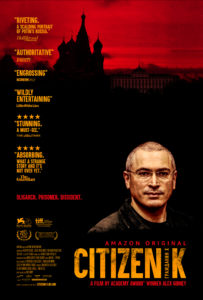 There has been “considerable evidence of unease about the way in which the invasion has panned out for Russia amongst the Russian elite broadly defined,” added the same official.
There has been “considerable evidence of unease about the way in which the invasion has panned out for Russia amongst the Russian elite broadly defined,” added the same official.
In theory, advanced Western democracies could steel themselves against corrupting foreign influences, exposing and punishing those who facilitate foreign interference. In practice, Putin’s Russia covers its tracks just enough, while masterfully exploiting divisions within the West, to keep its malign efforts effective, notes Georgetown Law professor David A. Super, a former general counsel for the Center on Budget and Policy Priorities.
Putin’s overreach has finally made him vulnerable, he writes for The Hill. But unless we provide Ukraine the means not just to blunt Russian offensives but to expel Russia from its lands — and unless we maintain sanctions until Russia actually leaves all the Ukrainian territory it vowed to respect in 1994 — democracy everywhere will remain under attack.
The war in Ukraine is a sign of the growing ideological struggle between democracy and illiberal autocracy, says a leading commentator.
“Many American politicians would understandably prefer to focus on the long-term competition with China,” Anne Applebaum wrote for The Atlantic. “But as long as Russia is ruled by Putin, then Russia is at war with us too. So are Belarus, North Korea, Venezuela, Iran, Nicaragua, Hungary, and potentially many others.”
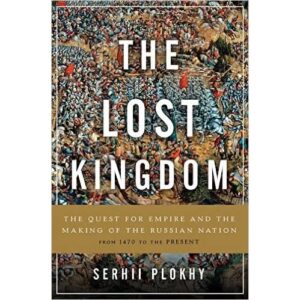 In his 2017 book, The Lost Kingdom, Harvard historian Serhii Plokhy relates two comments by Putin that are remarkably helpful for understanding his aggression against Ukraine, and perhaps his plans, analyst Bill Rapp writes for The Cipher Brief:
In his 2017 book, The Lost Kingdom, Harvard historian Serhii Plokhy relates two comments by Putin that are remarkably helpful for understanding his aggression against Ukraine, and perhaps his plans, analyst Bill Rapp writes for The Cipher Brief:
- In the first, Putin asked a Russian journalist if she had ever read the memoirs of one of the infamous leaders of the White counter-revolutionary forces, General Anton Deniken. One passage Putin cites states, “No Russia, reactionary or democratic, republican or authoritarian, will ever allow Ukraine to be torn away. The foolish, baseless, and externally aggravated quarrel between Muscovite Rus’ and Kyivian Rus’ is our internal quarrel, of no concern to anyone else, and it will be decided by ourselves.”
- Russia’s president has also been entrenched in the writings of Ivan Ilin, according to Plokhy, who emerged as a leading ideologue of the White movement. In fact, Putin even cited an observation by Ilin in a 2006 speech to the Duma, that goes a long way to explain Putin’s view of Russia’s past, and how he is applying it to Russia’s present. “Russia will not perish as a result of dismemberment but will begin to repeat the whole course of her history: like a great ‘organism,’ she will again set about collecting her ’members,’ proceeding along the rivers to the seas, to the mountains, to coal, to grain, to oil, to uranium.”
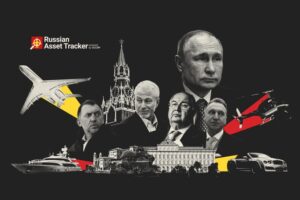
OCCRP
But because the regular military, the most powerful of Russia’s armed factions, does not necessarily dominate its internal security landscape, any successful plot [against Vladimir Putin] would likely require complex coordination among members of different agencies who may not know each other well or trust each other very much, VOX reports. In a government known to be shot through with potential informers, that’s a powerful disincentive against a coup.
“Putin has prepared for this eventuality for a long time, and has taken a lot of concerted actions to make sure he’s not vulnerable,” says the University of Michigan’s Casey, who studies the history of coups in the former communist bloc.
“The coordination dilemma … is especially severe when you have multiple different intelligence agencies and ways of monitoring the military effectively, which the Russians do,” he explains. “There’s just a lot of different failsafe measures that Putin has built over the years that are oriented toward preventing a coup.”
It’s equally unlikely that antiwar protests could morph into a full-blown movement to depose Putin, adds Erica Chenoweth, a political scientist at Harvard who studies protest movements.
“It is hard to organize sustained collective protest in Russia,” she notes. “Putin’s government has criminalized many forms of protests, and has shut down or restricted the activities of groups, movements, and media outlets perceived to be in opposition or associated with the West.”
The Center for International Private Enterprise (CIPE) launches the Center for Accountable Investment on April 5, 2022, at the National Press Club. Leading stakeholders and experts (below) from the Atlantic Council, Business at OECD, the American Enterprise Institute, Georgetown University, USAID, and the National Endowment for Democracy will explore the role accountable investment plays in countering authoritarian influence in democracies and markets. RSVP
